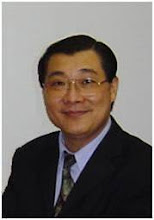
Dear CQE friends,
Some information related to Dr. Deming.
Deming Philosophy Synopsis
The philosophy of W. Edwards Deming has been summarized as follows:
- "Dr. W. Edwards Deming taught that by adopting appropriate principles of management, organizations can increase quality and simultaneously reduce costs (by reducing waste, rework, staff attrition and litigation while increasing customer loyalty). The key is to practice continual improvement and think of manufacturing as a system, not as bits and pieces."
In the 1970s, Dr. Deming's philosophy was summarized by some of his Japanese proponents with the following 'a'-versus-'b' comparison:
- (a) When people and organizations focus primarily on quality, defined by the following ratio,
-

- quality tends to increase and costs fall over time.
- (b) However, when people and organizations focus primarily on costs, costs tend to rise and quality declines over time.
The Deming System of Profound Knowledge
"The prevailing style of management must undergo transformation. A system cannot understand itself. The transformation requires a view from outside. The aim of this chapter is to provide an outside view—a lens—that I call a system of profound knowledge. It provides a map of theory by which to understand the organizations that we work in.
"The first step is transformation of the individual. This transformation is discontinuous. It comes from understanding of the system of profound knowledge. The individual, transformed, will perceive new meaning to his life, to events, to numbers, to interactions between people.
"Once the individual understands the system of profound knowledge, he will apply its principles in every kind of relationship with other people. He will have a basis for judgment of his own decisions and for transformation of the organizations that he belongs to. The individual, once transformed, will:
- Set an example;
- Be a good listener, but will not compromise;
- Continually teach other people; and
- Help people to pull away from their current practices and beliefs and move into the new philosophy without a feeling of guilt about the past."
Deming advocated that all managers need to have what he called a System of Profound Knowledge, consisting of four parts:
- Appreciation of a system: understanding the overall processes involving suppliers, producers, and customers (or recipients) of goods and services (explained below);
- Knowledge of variation: the range and causes of variation in quality, and use of statistical sampling in measurements;
- Theory of knowledge: the concepts explaining knowledge and the limits of what can be known;
- Knowledge of psychology: concepts of human nature.
Deming explained, "One need not be eminent in any part nor in all four parts in order to understand it and to apply it. The 14 points for management in industry, education, and government follow naturally as application of this outside knowledge, for transformation from the present style of Western management to one of optimization."
"The various segments of the system of profound knowledge proposed here cannot be separated. They interact with each other. Thus, knowledge of psychology is incomplete without knowledge of variation.
"A manager of people needs to understand that all people are different. This is not ranking people. He needs to understand that the performance of anyone is governed largely by the system that he works in, the responsibility of management. A psychologist that possesses even a crude understanding of variation as will be learned in the experiment with the Red Beads could no longer participate in refinement of a plan for ranking people."
The
Appreciation of a system involves understanding how interactions (i.e. feedback) between the elements of a system can result in internal restrictions that force the system to behave as a single organism that automatically seeks a
steady state. It is this steady state that determines the output of the system rather than the individual elements. Thus it is the structure of the organization rather than the employees, alone, which holds the key to improving the quality of output.
The
Knowledge of variation involves understanding that everything measured consists of both "normal" variation due to the flexibility of the system and of "special causes" that create defects. Quality involves recognizing the difference in order to eliminate "special causes" while controlling normal variation. Deming taught that making changes in response to "normal" variation would only make the system perform worse. Understanding variation includes the mathematical certainty that variation will normally occur within six
standard deviations of the mean.
The System of Profound Knowledge is the basis for application of Deming's famous 14 Points for Management, posted in this blog much earlier.
Enjoy reading.
I will keep on posting other Quality Gurus related information.
Best rgds,
Eddie KuangE : kuangkh@gmail.com or kuangkh@streamyx.com
M : +6012-505 2720
T : +605-805 2722
F : +605-805 2721
B : http://cqeblog.blogspot.com/
http://asqcssbb.blogspot.com/
http://cmqoe.blogspot.com/
W : http://www.cqetraining.com/
 Dear CQE Friends,
Dear CQE Friends,















